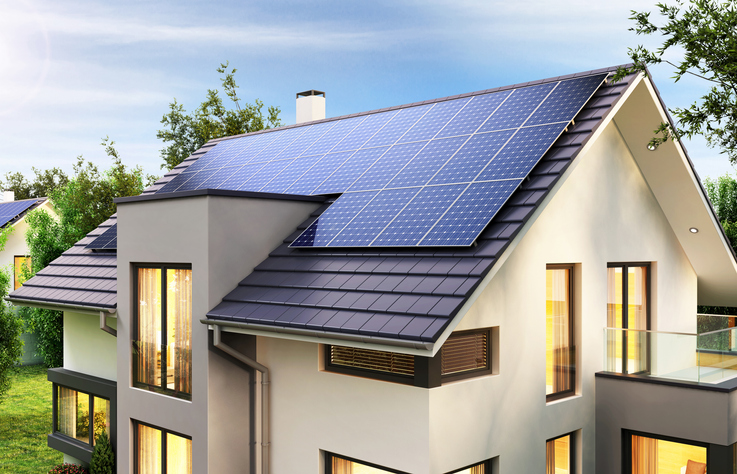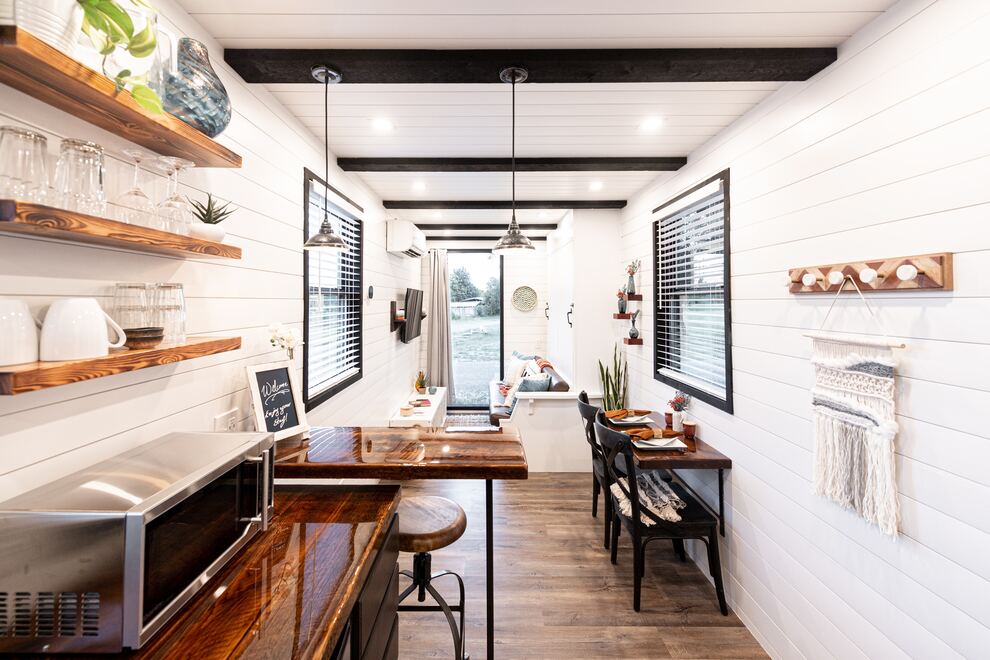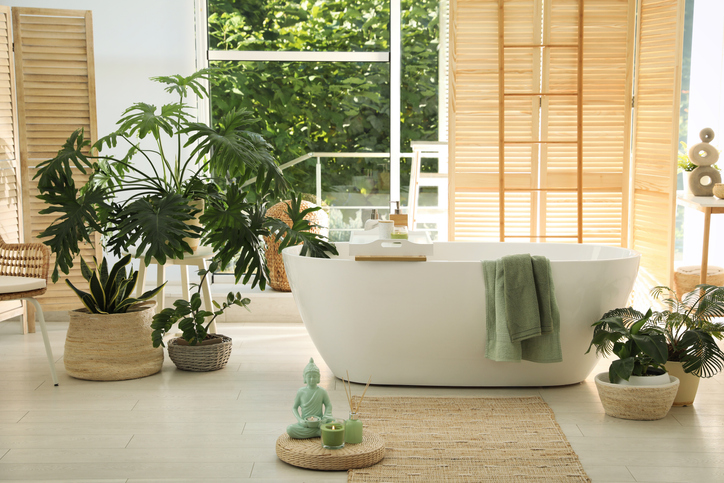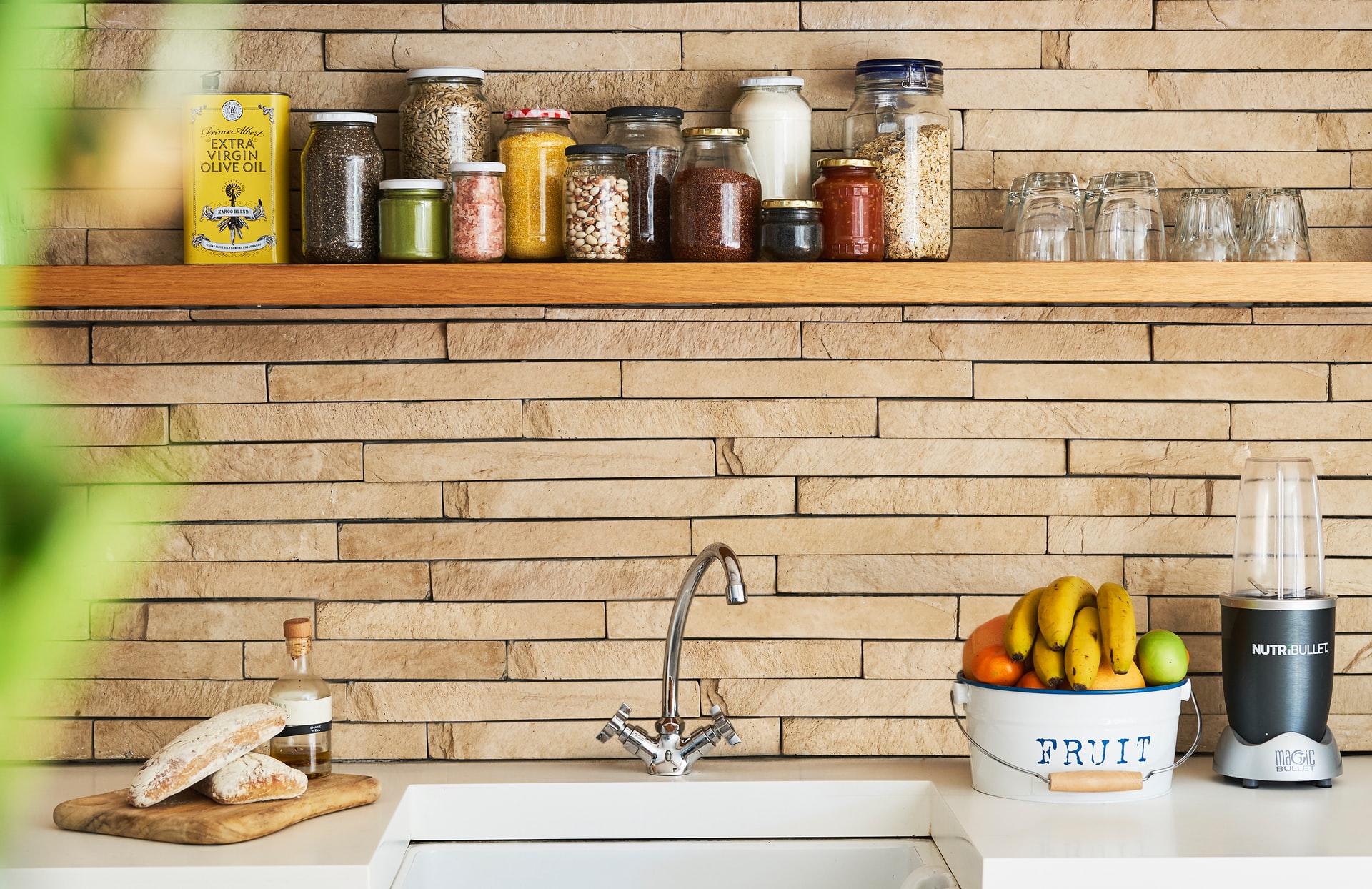Today, there are more than two million residential and commercial solar installations in the U.S. Within the next couple of years, the percentage of solar-powered homes in the country is likely to reach 2.5%. This has considerable implications for the real estate and housing construction markets as there is an increasing number of US solar energy projects since more and more buyers are interested in purchasing homes with solar systems nowadays. There’s little doubt that the installation of a solar system will require substantial investment for current homeowners. Still, people who make this leap can expect to recoup more than 90% of their investment in property value increases alone, not to mention the additional energy-saving costs that will add up over time.
If you’re considering a move to solar energy, you should know that this step will be tough to beat in terms of property investment. A reliable alternative energy system like solar power is an intelligent investment since it will make your home more efficient and it’s good for the environment. Here, we’ll discuss investing in solar panels and its benefits for homeowners in detail.
Table of Contents
- What are the benefits of a solar-powered home?
- What is solar energy?
- What is a solar panel?
- Types of solar panels
- Which type of solar panel should you use?
- Solar panel installation considerations
- Pros and cons of solar power
- Environmental benefits of solar power
- Secure your solar investment
What are the benefits of a solar-powered home?
Before shopping for solar systems and researching solar panels, you’ll want to understand all of the benefits you can expect when transitioning to a solar-powered home. Some key benefits of note include:
Energy savings
The energy savings you can expect vary in association with your typical energy consumption, the size of your solar system, the hours of sunlight in your location, and whether or not your local energy provider will purchase your excess energy for their grid and at what rate. On average, American homeowners spend about $1,450 annually on electricity. Consequently, you can expect to pocket your annual electricity costs.
Increase in home value
In addition to your annual energy cost savings, you can expect to see an increase in your home value after installing a solar energy system. On average, homeowners experience a $15,000 property value increase.
Reliable power
Solar energy power is reliable. Thanks to technological advances like robust battery backup systems, homeowners can expect to have all the power they need for their homes.
Good for the environment
People who want to live more eco-friendly lives can feel good about investing in a sustainable form of energy like solar. Many home shoppers are interested in purchasing homes that feature eco-friendly assets like solar systems.
What is solar energy?
Simply stated, it’s energy that comes from the sun which is converted into electricity. Solar panel installations collect the sun’s energy. The system converts that energy into usable power for the home. Excess energy can then be stored in the system’s batteries. Many municipalities and traditional electric companies now feature clean-energy programs to buy surplus solar energy from homeowners for use on their grid. If you participate in this program, you can earn passive income by selling your excess solar power to help power your community with clean solar energy.
What is a solar panel?
Solar panels, also referred to as PV panels, convert sunlight into electricity used to power homes or commercial buildings. Solar energy is the most abundant form of energy on the planet. Solar panels make it possible to harness this energy on a large scale to do things like power our lighting, refrigerators, and even our cars. Today, solar panels efficiency is designed to be as productive in the summer as in the winter. Clear, sunny days are best for generating the most solar energy, but many people enjoy solar-powered systems even in northern states.
Types of solar panels
There are several types of solar panels on the market today. As you shop for panels, you’re likely to encounter these:
Monocrystalline solar panels
Monocrystalline Solar Panels are the panels most popularly chosen for rooftop installations. They boast outstanding efficiency and the most power capacity of all solar panels. Their efficiency ranges, on average, between 17% and 22%.
Polycrystalline solar panels
Though less efficient than monocrystalline solar panels, polycrystalline solar panels are more budget-friendly, making them popular with homeowners. Their efficiency ranges between 15% and 17%.
Passivated emitter and rear cell (PERC) panels
These modules boast an efficiency of about 20%. The technology is newer than traditional solar panels like those listed above. These panels feature an additional layer of silicon that helps trap more solar photons.
Thin-film solar panels
These panels are an up-and-coming solar technology. They’re more flexible and contain solar cells that are much smaller than traditional solar panels. These panels may reach up to 25% efficiency.
Which type of solar panel should you use?
Your property and budget will likely impact the type of solar panel you choose for your home. Each type has its advantages and disadvantages. If you have a reduced amount of space, you may want to purchase monocrystalline solar panels because of their high efficiency. On the other hand, you might opt for the less expensive polycrystalline panels if you have plenty of space for solar panels. Currently, thin panels tend to be chosen for commercial installations where the weight of traditional panels might be problematic.
Solar panel installation considerations
As you research the various solar panels, there are some factors to consider to maximize energy production. You’ll also want to take time to get to know solar installation companies in your region. They should be able to confirm if your home should go solar since there is an electrical infrastructure required to be able to install solar panels in a house. You may need to do some upgrades to your electrical panel and electrical wiring and have your roof upgraded or even replaced. You’ll want to work with a company that has a solid reputation. It’s best to let a licensed solar installation professional install your solar system. Check references to ensure that you hire an experienced installer. Also, find out about net metering and energy buy programs from your local energy provider. Don’t forget to check for special solar panel installation incentives that may be available from the federal, state, or local government.
Pros and cons of solar power
Today, solar is reliable. Choosing solar panels is a decision that comes with benefits and a few considerations.
Pros:
- Renewable energy source: One of the significant advantages of solar panels is that they harness energy from the sun, a limitless and renewable source. This reduces reliance on non-renewable energy, contributing to a more sustainable future.
- Cost savings: Over time, solar panels can lead to substantial savings on your electricity bills. While the initial installation cost may seem high, the long-term benefit of generating your own electricity can outweigh this.
- Environmental impact: Solar energy is a clean and green alternative, producing minimal pollution and greenhouse gas emissions. By using solar panels, you’re actively participating in reducing your carbon footprint and promoting a cleaner environment.
Cons:
- High initial cost: The upfront cost of purchasing and installing solar panels can be a significant financial effort for many homeowners. While prices have been decreasing, it might still require a substantial investment.
- Weather dependency: Solar panel’s efficiency is affected by weather conditions. Cloudy days or locations with less sunlight may result in reduced energy production. Additionally, they don’t generate power at night, so an additional energy storage solution might be needed.
- Space requirement: Solar panels require enough space to generate a significant amount of electricity. This could be a challenge for homes with limited roof space or properties with shading issues.
Environmental benefits of solar power
The financial benefits of adopting solar energy are great, but so are the environmental benefits. Solar panels produce clean, emission-free, renewable energy. Unlike fossil fuels that pollute the earth, solar power does not harm the environment. Indeed, the industrial production of products like solar panels has an environmental impact, but this impact is offset by the environmental benefits of solar power, this is another reason to consider switching your home to a renewable energy source.
Secure your solar investment
Solar panels are a big investment, and in addition to the product warranty they usually have, you might want to consider having a home warranty, too, so your panels are protected in unfortunate events.
Generally, a home warranty covers essential home systems and appliances. Solar panels might not be included in standard coverage. However, some home warranty providers offer optional coverage or add-ons for solar panels. These additional plans can help protect your investment. Here’s how it typically works:
- Coverage for solar components: Specialized plans may include coverage for your solar energy system components, such as the solar panels, inverters, wiring, and other essential parts.
- Electrical components: Many home warranty plans cover electrical systems. Since solar panels are integrated into your home’s electrical system, coverage for electrical components can indirectly benefit your solar setup.
- Workmanship and installation: Some warranties extend coverage to include workmanship and installation. This ensures that if there are issues related to the installation of your solar panels, the warranty can help address those concerns.
Before making a decision, review the terms and conditions of any home warranty plan you’re considering, paying close attention to what is covered and any limitations. If solar panel coverage is not mentioned, inquire about the possibility of adding it through a customized plan.
Use this article as a reference and check other solar resources when you begin to shop for solar panels. Be sure to purchase all of your solar equipment from a licensed, reputable dealer and hire professional solar contractors to install your system so that it works properly and doesn’t involve any damage to your home’s roof.




